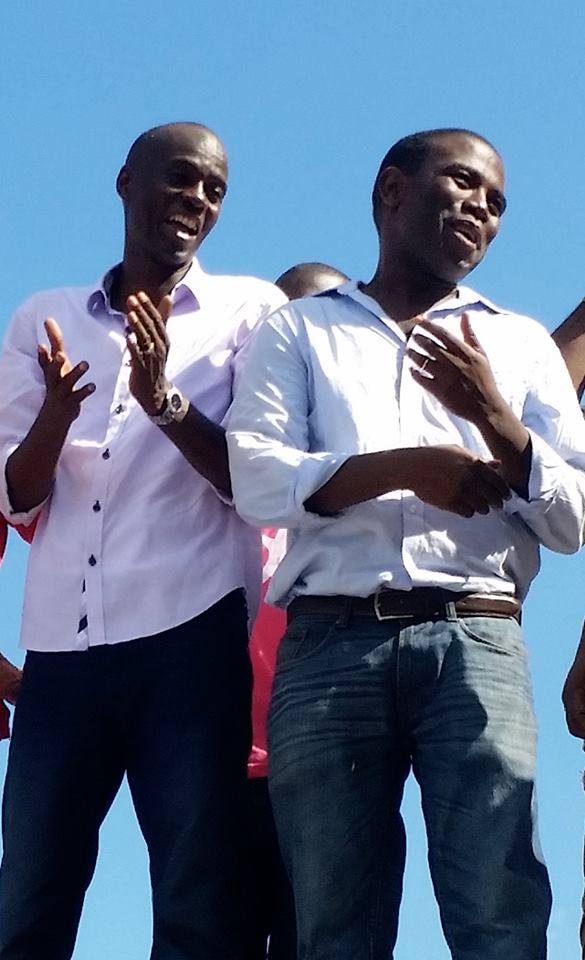
On Jan. 3, Haiti’s Provisional Electoral Council (CEP) published the final results of the Nov. 20, 2016 presidential election, and there was no surprise. As contested preliminary results had suggested, Jovenel Moïse, the candidate of former president Michel Martelly’s Haitian Bald-Headed Party (PHTK), won a first-round victory with 55.6% of the 1,062,839 valid votes cast.
Shockingly, the former banana exporter, 48, known as “Nèg Banann” or Banana Man, won power with only 9.55% of Haiti’s 6.2 million electorate, a total of 590,927 votes. (In contrast, former President Jean-Bertrand Aristide won with 1.1 million votes in 1990 and 2.6 million in 2000.)
In fact, if one adds the 57,824 voided ballots to the valid ones, only 1,120,663 people had their votes counted, 18.11% of the electorate. This sets a new record low presidential election turn-out for Haiti and the Western Hemisphere.
Therefore, a stunning 81.89% of Haitian voters were either not counted, prevented from voting, discouraged about voting, uninterested in voting, or refused to vote in protest against the continuing presence of the 3,000 troops and policemen of the United Nations Mission to Stabilize Haiti (MINUSTAH). This latter category of non-voters believe that no truly free, fair, and sovereign election can take place under a foreign military occupation, especially one that is acting on behalf of the U.S., France, and Canada, the three imperial powers most politically
and economically invested in Haiti.
The CEP’s announcement of final results came immediately following the ruling of a five-judge National Electoral Challenges Court (BCEN), which found that “there was no massive fraud, but the analysis of 12% of the voter tallies [procès verbaux or PV] revealed irregularities which could not affect the outcome.”
The random tally sheet review came in response to legal challenges by the three runners-up: Jude Célestin of the Alternative League for Progress and Haitian Emancipation (LAPEH), an affiliate of former president René Préval, who received 19.57% of the vote; Moïse Jean-Charles of the Dessalines Children (Pitit Desalin) party, a Lavalas break-away, who got 11.04%; and Dr. Maryse Narcisse of Aristide’s Lavalas Family Political Organization (FL), who garnered 9.01%.
After reviewing 1,560 PVs, the BCEN flagged only 78 of them as having “irregularities,” mostly poorly written or calculated totals for the candidates. Of those, they disqualified 70. Therefore, there was a difference of 7,103 votes (valid plus voided) between the final results and the preliminary ones, which had been announced on Nov. 28, 2016, auguring Mr. Moïse’s win.
In the end, 1,305 tally sheets were disqualified, 118 were never received at the Vote Tabulation Center (CTV), and 10,565 were counted. Out of the 27 presidential candidates who ran, the bottom 23 combined only amassed 4.78% of the vote.
Three of the nine CEP members had abstained from signing off on the preliminary results, but all nine signed the final tally.
Pitit Desalin and LAPEH questioned the partiality of the BCEN judges and refused to recognize the CEP’s final results. The FL announced that it was suspending its legal challenges.
The PHTK and other right-wing parties allied with it also dominated the parliamentary elections. Of 24 House of Deputies races, the PHTK won five seats, while its allies in KID, KONA, and Bouclier won five. In contrast, the FL won two seats, and Pitit Desalin one.
Meanwhile, in three Senate run-offs where the top two finishers win seats, the PHTK took two seats, in the North and Center departments, while the infamous paramilitary DEA fugitive and PHTK ally Guy Philippe of Consortium was elected for the Grand’Anse department. Bouclier’s Nawoon Marcellus, a former Lavalas deputy, also won a Senate seat for the North department.
In ten other Senate first round races, the PHTK was leading in six, while its confederates in AAA, KONA, and Bouclier were leading in three. The final legislative run-offs are scheduled for Jan. 29.









